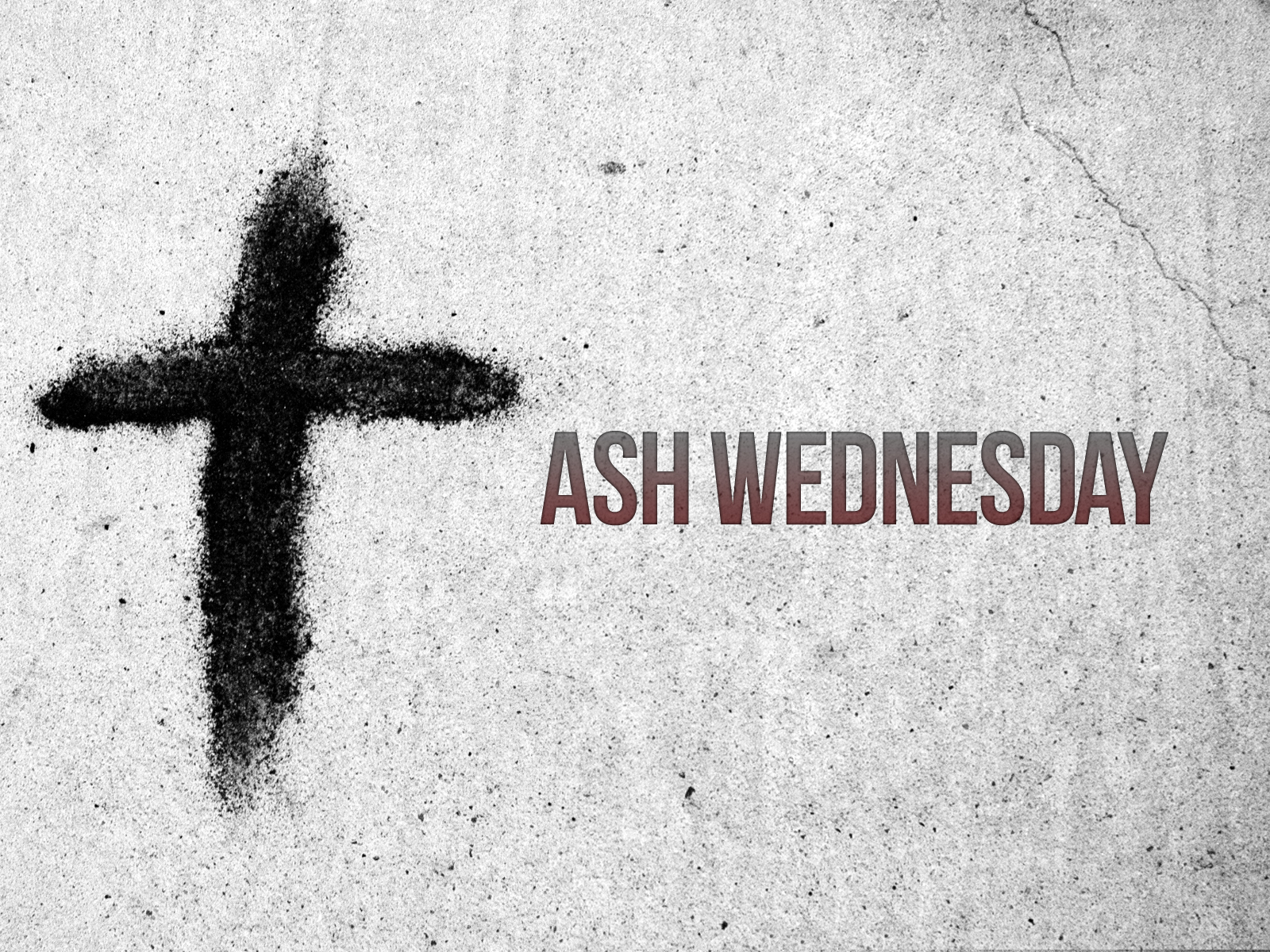What Do You Want from Me, Lord?
By Mike Page, Guest Preacher
There’s nothing like having to prepare a sermon to get procrastination work done in the garden. Yesterday I managed to turn the compost heap and shredded a pile of branches from the winter.
So thank you.
And thank you for the opportunity to share this message with you. There’s a great honour that you bestow on someone when you say to them “we want to hear what you have to say about God.”
Either that or you were desperate.
The Ultimate Sacrifice
Pastor John has spoken a couple of times recently about the fact that we don’t earn our salvation from God by doing good works, but that good works should be our response to God for saving us, for including us in his family.
This afternoon I want to explore this a bit—how do we live that out?
Any time there’s a war, there are tales of acts of heroism. Now I think that war is an abhorrent thing that should be avoided if at all possible—not at all costs, but if at all possible–and so I don’t want you to think that I’m glorifying the unthinkable, but at the same time I’m a sucker for hero stories, acts of men and women making the ultimate sacrifice or going the extra mile. Jumping on grenades or carrying injured comrades back to safety at extreme personal risk.
A common feature of those stories is that those acts of heroism often have a profound effect on the people whose lives were saved. Whether it’s a bond of friendship that cements two people without limits, or survivors performing acts of service for the family of someone that gave their life, there are life-long bonds that are made. There’s no obligation, but there’s a deep sense of owing something, or of trying to live up to whatever it was the other person saw in them, to justify them considering the life of the person that was saved to be more important than their own.
Can you imagine what it would be like to be in that situation? To know that someone thought your life was worth saving, giving you a second chance. What would your response be?
So what’s that got to do with us as Christians? Jesus took the bullet for us on the cross. He died so that we might live.
“You see, at just the right time, when we were still powerless, Christ died for the ungodly. Very rarely will anyone die for a righteous person, though for a good person someone might possibly dare to die. But God demonstrates his own love for us in this: While we were still sinners, Christ died for us.” -Romans 5:6-8
And he died in our place so that through him, God can offer us forgiveness. We didn’t deserve it. It wasn’t because of something good that we did or even because he saw some potential in us. God takes the first step “…while we were still sinners.”
Somehow, though, it’s not the same as someone physical that we know dying for us is it? There isn’t the same immediacy about it, because we haven’t experienced it on the battlefield. Because we’ve only been told about it. We weren’t there, weren’t eye-witnesses. It was a long time ago.
But it’s still real. Just close your eyes for a minute and tell yourself: “Jesus died for me. He died so that I can be forgiven and live eternally. He gave up his life so that I can live in relationship with God.” It’s true.
Our Response
So what’s our response? Paul encourages the Roman Christians how to respond to what Jesus has done for us.
“Therefore, I urge you, brothers and sisters, in view of God’s mercy, to offer your bodies as a living sacrifice, holy and pleasing to God—this is your true and proper worship.” -Romans 12:1
This is what I want to concentrate on right now. This should be the echo that carries you through this day, week: Because of God’s mercy, be a living sacrifice.
But what does that mean? A sacrifice is usually something that dies. The Jews would have known all about animal sacrifices, doves, lambs, bulls. You slit its throat and it was dead. But Paul urges us to be living sacrifices.
He’s telling us to go and live our lives for Jesus, isn’t he? Don’t follow your own ambitions, your own goals any more. Go out and carry on his ministry where he no longer can. Build his Kingdom where he physically cannot anymore. Be his hands, his feet, his voice.
The thing is, sacrifices hurt, don’t they? They mean that we have to do without something that we would otherwise have had. Whether it’s time or resources or money. Increasingly I find that it’s energy—that’s my limited resource. But Paul is saying that we should give it up to God because of what he’s done for us. It’s not just doing without something like chocolate or alcohol for Lent, it’s giving it up to God: “Here, You have this Lord. I don’t need it. I want you to have it.” Maybe it’s a relationship or an attitude. A talent. A life goal. A piece of yourself.
The great thing is, whatever it is, God will more than make it up to us. If he’s asking us to give up a relationship, he’ll bring someone else into our lives. If it’s the selfish pursuit of our own happiness, he’ll give us joy, he’ll give us peace, he’ll give us contentment, he’ll give us security. And isn’t that what we were after all the time anyway? What we were chasing?
So what is God calling you to do? What is he gently encouraging you to give to him? Because God is gentle. He’s not a bully, he’s patient and he’s loving. He knows what we need, what’s good for us and what’s not.
And he also knows that we need encouraging from time to time. It’s easy to lose track of the end goal and fall back into our old ways. The trouble with living sacrifices is that they have a habit of getting off the altar and walking away.
The writer to the Hebrews told them:
“Therefore, since we are surrounded by such a great cloud of witnesses, let us throw off everything that hinders and the sin that so easily entangles. And let us run with perseverance the race marked out for us, fixing our eyes on Jesus, the pioneer and perfecter of faith. For the joy set before him he endured the cross, scorning its shame, and sat down at the right hand of the throne of God. Consider him who endured such opposition from sinners, so that you will not grow weary and lose heart.” -Hebrews 12:1-3
God knows that sometimes we’ll flag a bit, need an extra push. It’s why he encourages us elsewhere in Hebrews not to stop meeting together but to keep encouraging one another (Hebrews 10:25). He knows that sooner or later we’re going to take our eyes off the ball, get distracted by life—we all do. So God tells us to take inspiration from Jesus. Consider how he persevered in the light of adversity and be encouraged by it!
To All Christians
This is a call to all Christians. The Bible doesn’t distinguish between the spiritually mature and the immature, whatever that means. Wherever you are in your spiritual walk, now’s the time to start living sacrificially, if you’re not doing it already.
It took me about six months of hearing the Gospel back when I was in my first year at Aberystwyth University before I accepted Jesus into my life. What was holding me back was the knowledge that it would have consequences for me. I knew that if I was going to accept God’s forgiveness, I had to take the whole of God seriously. I knew it would mean my service, when I had plans with what to do with my time. I knew it would mean giving financially, even when I was only a poor student. I immediately started giving regularly what was for me back then as a student a significant amount the church.
It took six months of hearing God’s message of freely offered forgiveness before I was ready to say “Yes please Lord, come into my life, be my Lord, I relinquish my life to you.” And then I started serving, I started giving, I started investing my life in the Christian community around me by attending a Bible study—right from the beginning. Right from the beginning—because I knew that if I waited it probably wouldn’t happen! And I knew that it was the right thing to do, that if this new relationship was real, it was going to have real consequences in my life.
So there’s no wriggle room on this. Paul doesn’t say don’t worry about doing this until you’ve spiritually got your act together. This is for all of us from Day 1.
Cheap Grace
Time and resources are only one part of being church. Living as sacrifices means living in grace in God and with each other, being significantly invested in each other’s lives in Christian community. It means practicing grace with each other.
In his book, The Cost of Discipleship, Dietrich Bonhoeffer, the Lutheran theologian who died in a concentration camp at the end of WWII for daring to stand up to National Socialism, talked about costly grace and cheap grace:
“Cheap grace means grace sold on the market like cheapjacks’ wares. The sacraments, the forgiveness of sin, and the consolations of religion are thrown away at cut prices.
Grace is represented as the Church’s inexhaustible treasury, from which she showers blessings with generous hands, without asking questions or fixing limits. Grace without price; grace without cost! The essence of grace, we suppose, is that the account has been paid in advance; and, because it has been paid, everything can be had for nothing. Since the cost was infinite, the possibilities of using and spending it are infinite. What would grace be if it were not cheap?…
Cheap grace is the preaching of forgiveness without requiring repentance, baptism without church discipline, Communion without confession, absolution without personal confession. Cheap grace is grace without discipleship, grace without the cross, grace without Jesus Christ, living and incarnate.
Costly grace is the treasure hidden in the field; for the sake of it a man will go and sell all that he has. It is the pearl of great price to buy which the merchant will sell all his goods. It is the kingly rule of Christ, for whose sake a man will pluck out the eye which causes him to stumble; it is the call of Jesus Christ at which the disciple leaves his nets and follows him.
Costly grace is the gospel which must be sought again and again, the gift which must be asked for, the door at which a man must knock.
Such grace is costly because it calls us to follow, and it is grace because it calls us to follow Jesus Christ. It is costly because it costs a man his life, and it is grace because it gives a man the only true life. It is costly because it condemns sin, and grace because it justifies the sinner. Above all, it is costly because it cost God the life of his Son: “you were bought at a price,” and what has cost God much cannot be cheap for us. Above all, it is grace because God did not reckon his Son too dear a price to pay for our lives, but delivered him up for us. Costly grace is the Incarnation of God.” (The Cost of Discipleship )
A Community of Costly Grace
I’d love for us to be a community of costly grace.
What does this mean for us?
So what does sacrificial living mean for us as Starnberg Fellowship?
We’re standing in front of a big hairy decision as one of our church fathers would have put it. This Bahnhofsplatz 10 project. If we’re going to go for it, as we said we wanted to a month ago, it’s going to require some sacrifice, it’s going to cost us time and money. Are we prepared to make that investment? We sent round an email last week asking you to let us know what you were prepared to commit to to make this fly. Several people have generously offered their time and resources, but so far no-one has indicated that they’re prepared to commit financially. No-one.
I think we need to ask ourselves what we want as a church. Do we want to play at being church, or do we want to be church?
What’s the difference?
It’s a question of the risks we’re prepared to take. Playing at being at church doesn’t involve much risk. It means attending church on Sundays, bible studies and coffee mornings, the occasional outreach, that sort of thing. If it works, fine, if it doesn’t, well, we haven’t invested ourselves too much. It’s convenient. It won’t have cost us too much.
Being church in contrast is costly. It involves investing our lives, our talents, our resources. It involves taking a chance and trying to really make it work, make a difference. It’s the difference between watching a horse race and watching a horse race that you’ve bet the house on.
I’m not trying to bully you into committing to BHP10, in fact I find trying to manipulate people in any shape or form abhorrent. It’s not how I came to Christ and it’s not how I work – my job is all about weighing evidence, not rhetoric. But I do want to challenge you to at least think about it. The worst that can happen is that we sink our hopes and some money in it and in six months time we’re back at square one. But the potential for reaching the community and making an impact with the Gospel is huge.
There’s no guarantee that it could work, but I’d love to see us give it a try, to take the risk. At the end of the day, it might fail – there are no guarantees that it will work – but at least we’ll have tried. What’s the worst that could happen?
Malachi 3
I’d like to wrap up with a passage from the book of Malachi. It’s a slightly obscure one, but contains a great promise. God is quite harsh with Israel, accusing them effectively of stealing from him by withholding from him, but he gives them a second chance and a promise:
Breaking Covenant by Withholding Tithes
“I the Lord do not change. So you, the descendants of Jacob, are not destroyed. Ever since the time of your ancestors you have turned away from my decrees and have not kept them. Return to me, and I will return to you,” says the Lord Almighty.
“But you ask, ‘How are we to return?’
“Will a mere mortal rob God? Yet you rob me.
“But you ask, ‘How are we robbing you?’
“In tithes and offerings. You are under a curse—your whole nation—because you are robbing me. Bring the whole tithe into the storehouse, that there may be food in my house. Test me in this,” says the Lord Almighty, “and see if I will not throw open the floodgates of heaven and pour out so much blessing that there will not be room enough to store it. I will prevent pests from devouring your crops, and the vines in your fields will not drop their fruit before it is ripe,” says the Lord Almighty. “Then all the nations will call you blessed, for yours will be a delightful land,” says the Lord Almighty.” ((Malachi 3:6-12)
Test me in this and see if I will not throw open the floodgates of heaven and pour out so much blessing that there will not be enough room to store it!
_____________________
Exciting Update: As of Wednesday, 18 April we are a little more than halfway to our goal! Thank you for your generous contributions.
If you would like to contribute, please find the church’s bank details here: IBAN: DE38702501 500027023274; BIC BYLADEM1K Note: Please mark donations by writing either Gift, Donation, Tithe or Spende in the Verwendungszweck field. This will allow us to issue a receipt (German: Spendebescheinigung) for tax purposes.







